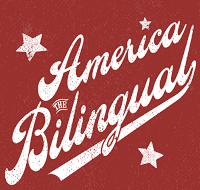Hello, everyone and
welcome back to my blog! Today is a very special day, as it marks 2 years of
having started this language-learning blog. I am overwhelmed by the amount of
lovely comments and words of encouragement I have received over the years- it
truly makes writing for you so special and rewarding. I am humbled to have such
an amazing support system and hope to make all of you even prouder this
upcoming year.
As you may have
read in my first post of the year, this year holds many challenges, yet
exciting adventures abroad. On Sunday, I embark on my third study-abroad
journey in Yaoundé, Cameroon, where I hope to learn more about what makes
Cameroon so linguistically and culturally unique. With over 200 languages
spoken and French being one of its official national languages (the language I
will be speaking and studying in while I am there), I am sure that I will be
filled with many fun linguistic experiences that I cannot wait to share with
you.
That being said,
for this week’s post, I thought that I would share what my favorite
language-learning podcast is: America the Bilingual, a podcast that is “part of
the Lead with Languages campaign of ACTFL- The American Council on the Teaching
of Foreign Languages” written by Steve Leveen and its Mexican and bilingual
producer, Fernando Hernández. In 2017 alone, 20 episodes were launched that are
usually anywhere between 10-30 minutes long. In my opinion, every second and
minute is filled with many interesting anecdotes and personal stories of how
learning languages, or being reluctant to learn them has positively, or
negatively impacted monolingual, bilingual, and multilingual individuals’
lives.
This upcoming
year will mark its second year of being on air, so there is currently only a
minosode available in 2018, as far as I am concerned; however, Steve has
mentioned just how thrilled he is to launch their new episodes very soon. A few
of the episodes’ titles are: “The Lamp of empathy”, “With a little help from
his friends- and good French wine”, “Just call me Anna”, and “Mother Tongue”,
which instantly pull you in as a listener. I personally find this podcast in
particular to not only be worth your time, but to also be very informative. You
can learn anything from the cognitive, personal, and professional benefits of
acquiring a second language as a native speaker, or as an adult, of studying
abroad in high-school, or college, and of what kinds of career possibilities you
can have as a linguistically capable and informed global citizen.
This podcast does not just spew out facts giving you the number of speakers of x language, or of y language, but rather takes the time to recount real human experiences of the beauties, mysteries, confusion, and frustration that comes with having multiple identities and personalities. It talks about our well-known eureka moments when something finally clicks in another language and why languages are not meant to be subjects, but rather tools with which we can more easily navigate the complexities of the 21st century.
This podcast does not just spew out facts giving you the number of speakers of x language, or of y language, but rather takes the time to recount real human experiences of the beauties, mysteries, confusion, and frustration that comes with having multiple identities and personalities. It talks about our well-known eureka moments when something finally clicks in another language and why languages are not meant to be subjects, but rather tools with which we can more easily navigate the complexities of the 21st century.
It also has the goal
to inform educators, learners, families, parents, and friends about why we
should invest in our children’s language education starting at a very young age
and what we can do to “reverse” that if we started “too late.” Ultimately, it
is a podcast that does not give you fluffy details to make it sound more easy
than it is- it speaks of the truth, of what people actually experience when
they are in their home countries and abroad. It will move you. It will inspire
you and it will hopefully make you want to pick up a language that has been
stored in some part of your brain, but has been out of use for years. To attest to this, I have listened to 16/20 episodes in just a matter of two weeks and will continue to listen to all of its episodes as long as it continues to air. As Steve
Leveene always says, you do have hope and can make it, even as a recovered
monolingual.
Here is its link to download it on iTunes: https://itunes.apple.com/us/podcast/america-the-bilingual/id1219082864?mt=2
Here is its link to download it on iTunes: https://itunes.apple.com/us/podcast/america-the-bilingual/id1219082864?mt=2

